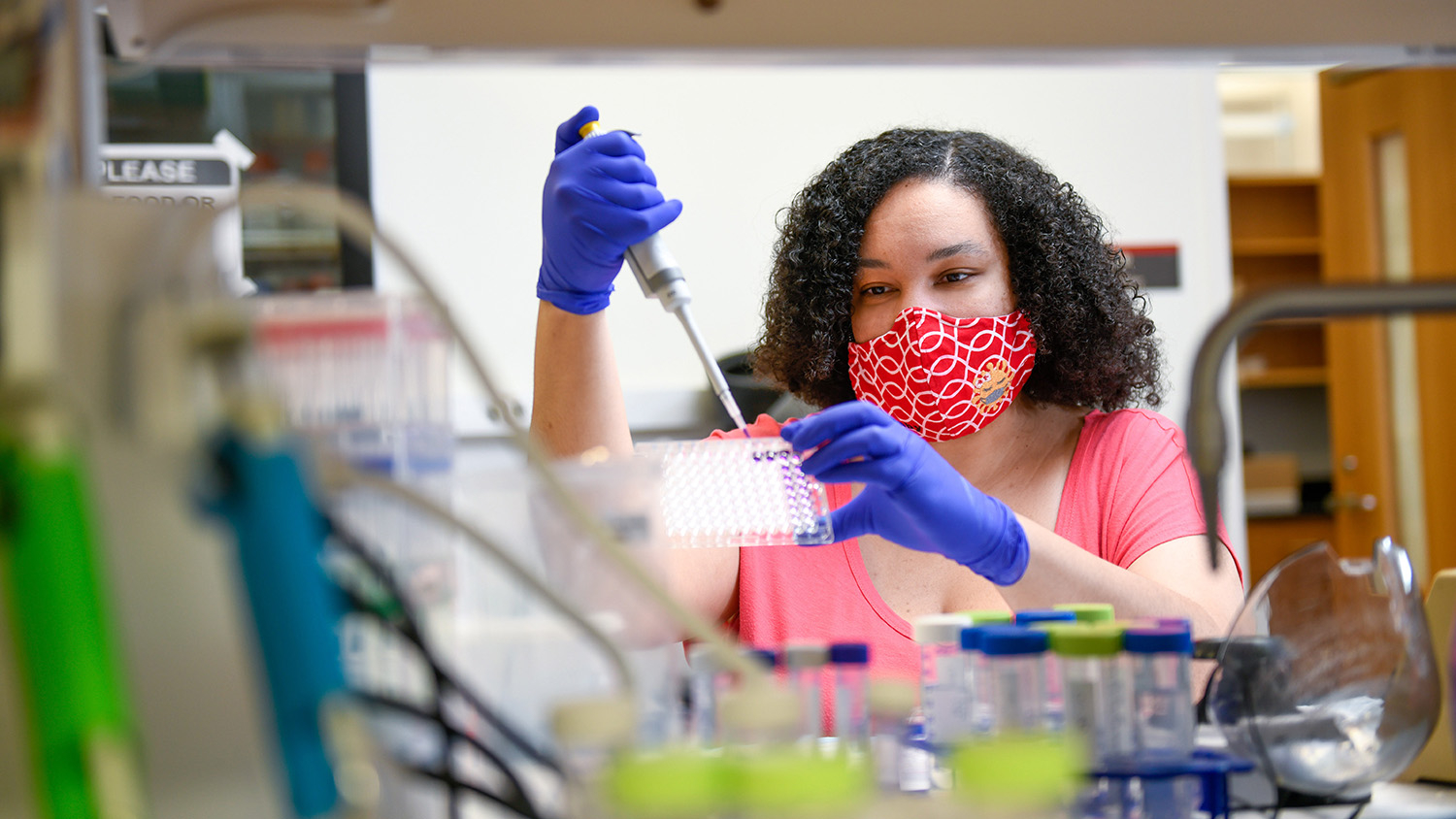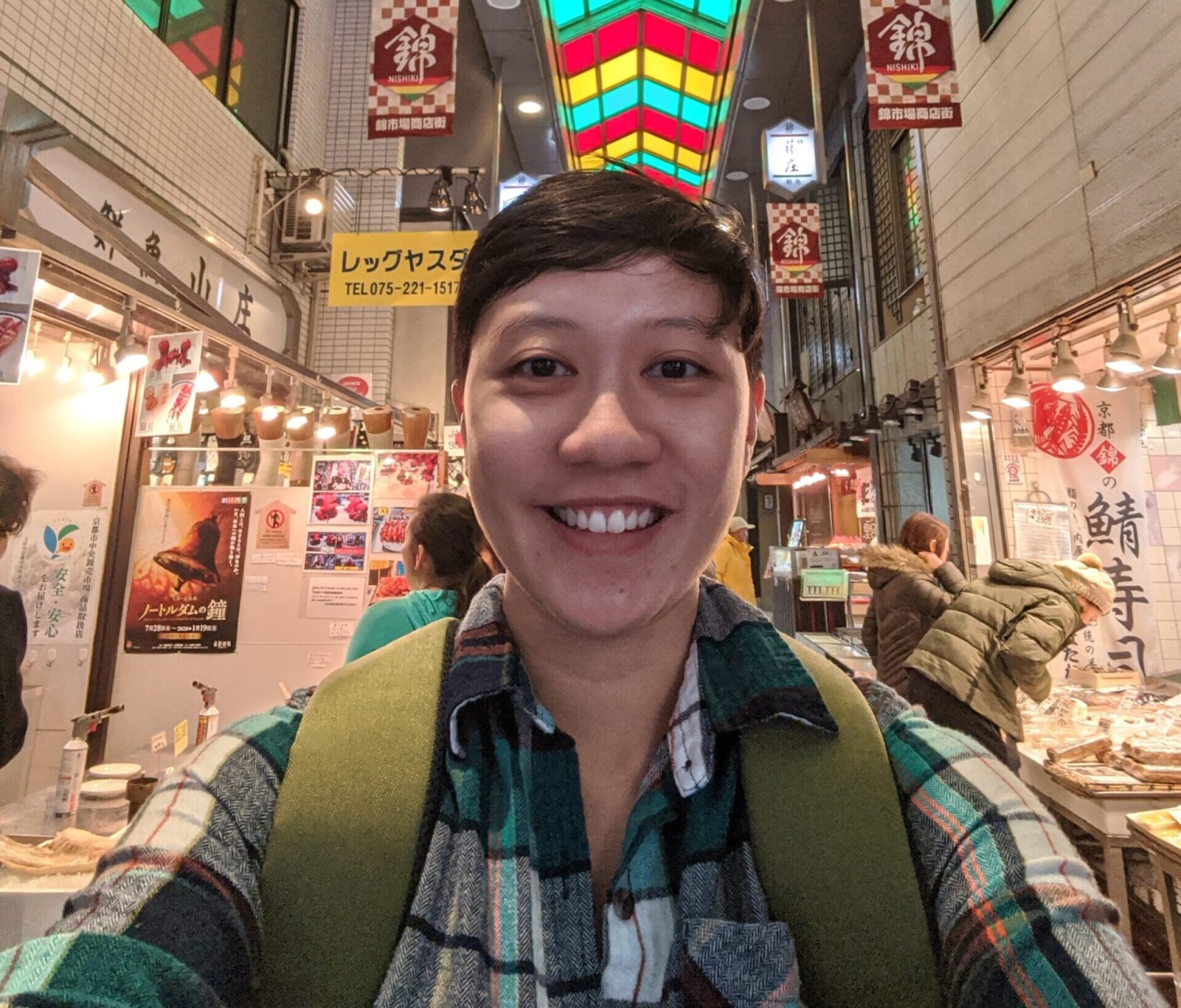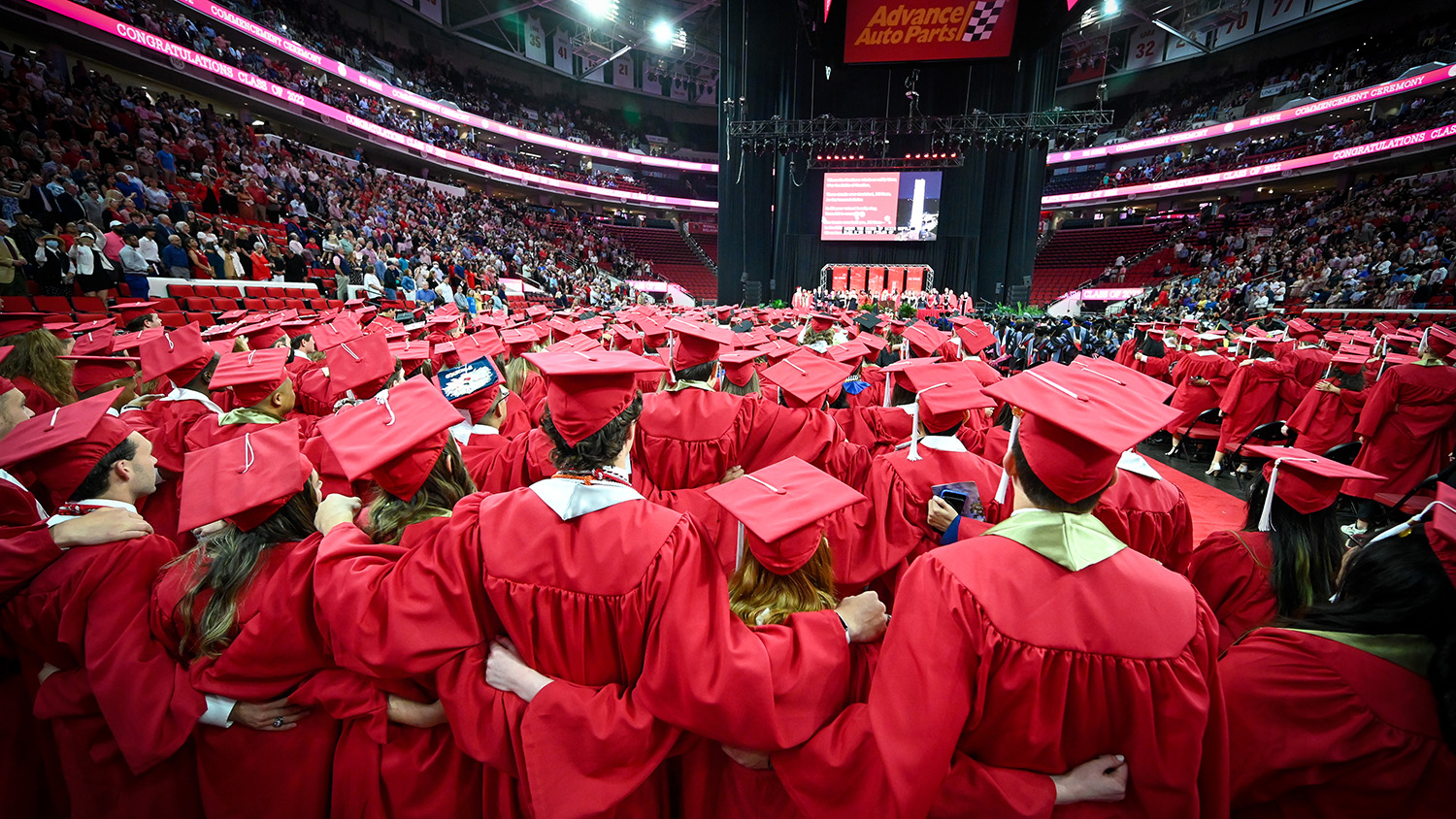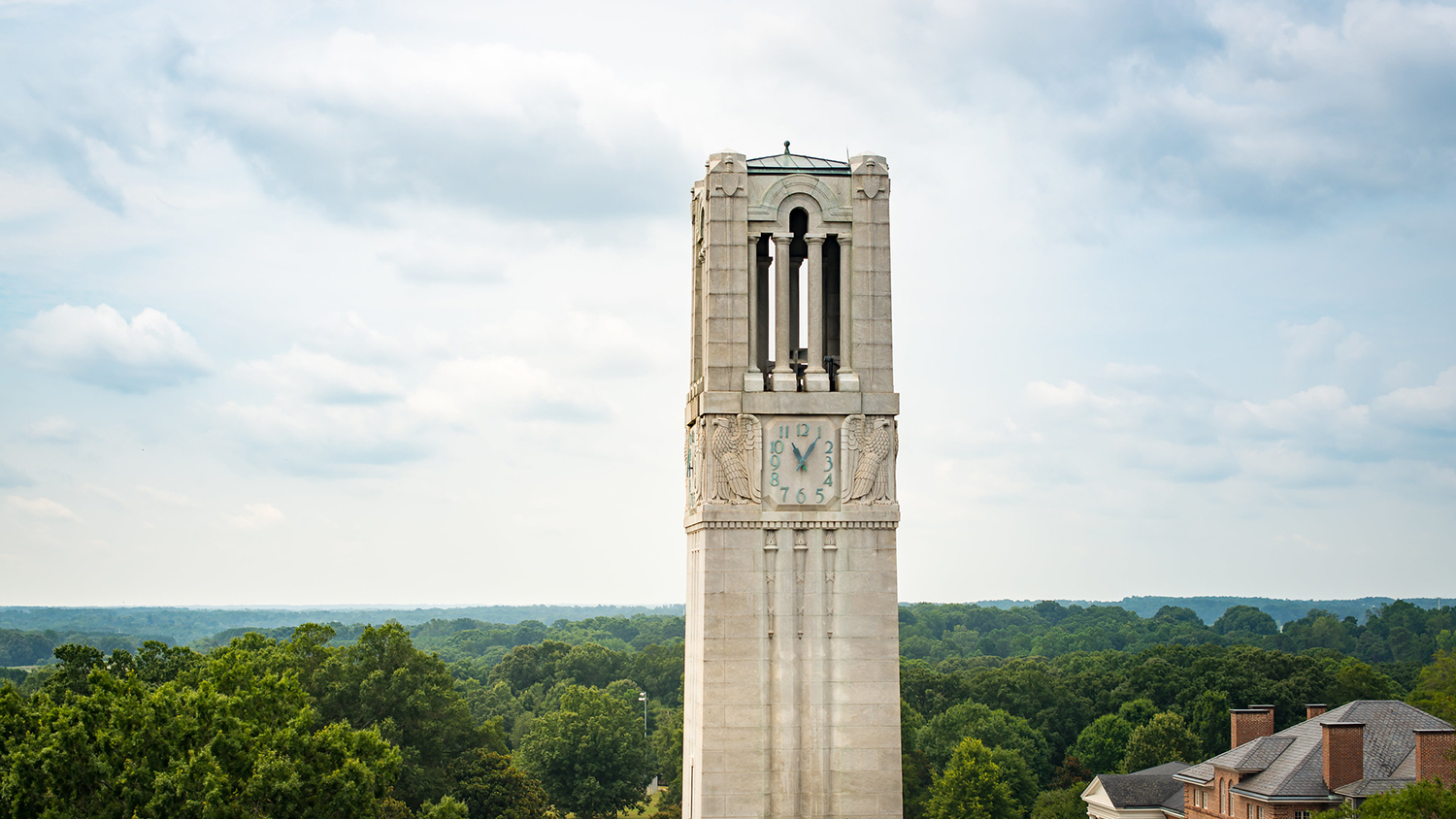In Step with PEP

The Provost’s Professional Experience Program (PEP) highlights NC State’s commitment to providing outstanding, well-rounded experiential education to students. PEP supports undergraduate students’ academic success by funding on-campus work experiences that give them more time to focus on their studies.
Since its inception in 2015-16, PEP has helped numerous students gain greater access to research and professional development opportunities. For the 2021-22 academic year, more than 500 students have been involved with PEP, representing 113 unique departments spanning all of NC State’s colleges.
“PEP is an opportunity to pay undergraduates to gain professional development experiences such as the myriad of tasks involved with conducting research related to their majors, minors and/or interests,” said Lisa Paciulli, a lecturer in the Department of Biological Sciences. “These tasks include setting a work schedule around their class schedule and sticking to it, coming to work on time, completing the expected work, learning how to use various computer software programs, working independently as well as part of a team/group, etc. Students are learning real-life work skills via PEP.”
Student Success
Cooper Lamb, a junior animal science major, has certainly benefited from his involvement in PEP. He works in the Paciulli Lab on projects including characterizing the huff vocalization made by aye-aye lemurs.
“PEP is a great way to gain valuable research experience as an undergraduate at NC State,” said Lamb. “I have learned so much about good research practices through my position with PEP. I improved on my leadership and communication skills as an undergraduate student research lead. My research work has led to me being a co-author on a poster that was presented at the State of North Carolina Undergraduate Research and Creativity Symposium last fall.”
Students not only perform important research, they support faculty and explore career pathways as well. For example, Elizabeth Eskander, a senior double majoring in psychology and biology, assisted philosophy professor Veljko Dubljevic and the NeuroComputational Ethics Research Group through a PEP position. Dubljevic recently received an NSF CAREER award in support of his research program in neuroethics, and was grateful for the talent and effort of the students working with him through the PEP in providing invaluable assistance to him in the application process.
“PEP is an excellent opportunity for students to work and be paid for your research work,” said Diego Garza Guajardo, a human biology and philosophy double major working in the Paciulli Lab. “It allows you to have a degree of financial freedom as well as a great opportunity to work with a mentor who will guide you through research that you may want to pursue in the future after you graduate.”
Faculty Feedback
Since the beginning of PEP, Paciulli has had at least two PEP students working with her every academic year. Most of the research that students do in the Paciulli Lab involves identifying vocalizations and other forms of behavior from audio- and video-recordings of Duke Lemur Center lemurs. The Paciulli Lab has benefited from working with PEP students as it gives the small lemur research team an opportunity to pay students to collect data on various lemur projects that may otherwise not be pursued.
Paciulli has learned that giving students a paying job related to their academic interests, structured training and agency helps set the stage for great results. She noted how giving students a goal and a roadmap to achieve that goal have been linked to greater academic achievement and problem-solving skills.
“Studies show how it is usually wealthy students who can afford to work in a lab without getting paid, while those less wealthy have to seek paying jobs to be able to pay for their day-to-day living expenses. This usually translates to having even less or no time to dedicate to conducting research,” Paciulli said. “PEP removes these barriers by allowing faculty to pay students for the work they do with and for them. Thus, the program by nature offers a more JEDI (just, equitable, diverse and inclusive) approach to who applies to do research with you, because students from any socioeconomic background can apply because they know that they will be paid for the work they do. It is a win-win solution for all involved, and we want to thank the Provost’s Office and generous donors for helping students and faculty achieve their goals in ways that would not be possible without PEP.”
Adriana San Miguel, an assistant professor of chemical and biomolecular engineering, has been involved with PEP for three years. During this time, she has had several PEP students work in her research group, where undergraduate students get the chance to work with faculty and graduate students.
“Because they [the students] are mainly funded by the Provost’s Office, we are able to have more undergraduates doing research with us. They get a taste of what graduate school is like, and end up not only learning a lot, but also producing valuable scientific results,” she said.
Getting Involved PEP
With the growing number of students on campus, it is likely that even more of those students will want to apply for PEP positions in the future. Faculty should be aware of the availability of help from PEP, which continues to provide mutual benefits for all involved.
“PEP is a really great resource for both undergraduate students and research groups, said San Miguel. “It is typically fairly easy to apply to get PEP positions, and also to find students to fill them in. It is a win-win situation.”
Faculty interested in having a PEP position can log into MyPack Portal, go to PEP Central and request a position through May 31, with approvals communicated in early summer. Current PEP positions do not automatically renew, so current PEP faculty must Review/Modify their current position(s) in PEP Central and submit them again for consideration.
Faculty with questions about the Provost’s Professional Experience Program should contact Marion Zanga, PEP Coordinator, at 919.513.1887 or mrzanga@ncsu.edu, Shawn Smith at spsmith2@ncsu.edu, or Krista Ringler at kmringle@ncsu.edu.
This post was originally published in Provost's Office News.
- Categories:


